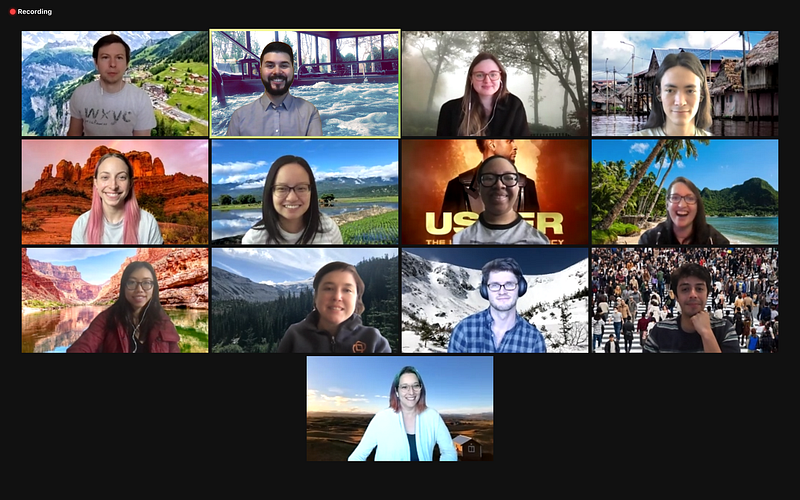
Last fall, as the election season heated up and our country was reeling from a new surge of coronavirus, online news and business blogs churned out advice about talking politics at work. Predictably, the posts were not unanimous in their advice, some extolling the virtues of conflict avoidance and others offering tips for successfully navigating challenging conversations. So what’s a leader to do: avoid those difficult conversations, or embrace them?

As I perused some of those articles on my computer screen, I noticed a real-life conversation just outside my window, where workers were busy repairing my porch. As they hammered and sawed, our contractor and his carpenter hollered their thoughts about the day’s news. Immigration. Black Lives Matter. Police violence. Hunter Biden. Masks: safety or theatre? No topic was out of bounds, and on almost no topic did they agree. On some issues they were less opinionated, simply thinking out loud with one another as sounding boards; on others they were steadfast in their differing views. None of the disagreements seemed to harm their desire to work together or come back to the conversation the next day.
As my inbox pinged with advice articles from Harvard Business Review and CNN, I wished these two men could go on the road to teach by example. They weren’t overwrought over whether or not to talk about politics; they just followed what was on their minds in the flow of conversation. Their workplace culture, so to speak, welcomed the exchange of ideas.
Cortico works at the intersection of two very different norms for workplace culture. About half of us have a background with scrappy, resource-strapped and very process-centered nonprofit community organizations. The other half has come from the world of technology — specifically startups, with agile techniques and a focus on solving small problems in quick succession to lead to big impact. We love the challenge and opportunity of building a culture that represents the strongest features of both worlds.
Our mission is to bring underheard voices to the center of public dialogue, and this begins with listening to one another, including at work. Our Local Voices Network gathers small groups of community members for small group, facilitated conversations that are recorded and uploaded to our software platform and shared with decision makers and local media. After all, if we encourage our conversation participants to understand and engage with each other, we as an organization have a responsibility to do the same discussion and listening internally.
Technology startups have gotten a lot of attention as innovators of workplace culture. Yet what gets attention are perks like bean bag chairs, endless taco bars, and pinball machines. All of those ‘culture’ trappings are meaningless if folks aren’t able to bring their best ethical, relational, and committed selves into conversation and therefore into their work.
Like the men working on my porch, I would find it unnatural to keep my views, habits and experiences separate from my work. And I don’t believe there is such a thing as an apolitical conversation — only conversations where people bring their full selves or conversations where people try to hide themselves to fit into a dominant culture. In other words, we don’t have to be talking about candidates or ballot issues to be “talking politics.”
It is political to think about our obligation to one another as members of a team, or residents of a neighborhood, city, country and world. Workplace policies, legislation affecting our work, and policies and laws that affect us as individuals all reflect political dynamics lurking under the surface. Even strategic planning raises questions of values, including how best to honor our past and prepare for our future.
All conversations are political conversations. And they belong at work if we are going to build effective products, offer meaningful services, act as responsible employers and contribute economically or socially to this nation.
In the midst of sharp scrutiny around tech companies’ ethical failures in the pursuit of scale, tech leaders in particular should be engaging constructively with thorny issues more often, not less. Because chances are that if our corporate choices come at the cost of silencing voices on our teams, it is likely that we are missing opportunities to learn how we could be doing better.
As Fred Rogers taught us, “if it’s mentionable, it’s manageable.” Our values and convictions don’t disappear when we’re prohibited from talking about them; they just go underground. And then re-surface as resentment, anger, or simply a hesitancy that keeps us from bringing out our experiences, our ideas, and our uncertainties.
So to my fellow tech CEOs: join me in prioritizing a culture of ‘talking politics’ over a culture of pinball machines and tacos. Or even better, create a culture in which your team talks politics over pinball and tacos. Your culture will be stronger for it, our culture will be stronger for it, and all of our work will be more effective.
Here are some ways to prioritize politics and authentic engagement in your own decision-making:
Begin meetings or one on ones — especially about challenging workplace problems — with each person sharing a story about a value that is important to them as they enter the conversation.
Make time for folks to share not just their opinions and concerns but also an experience that can help others understand why they hold the position they do.
When you know an issue is contentious or that there are many strong positions, make space for listening without having to come to an agreement right away. Frame the goal as simply understanding what is true for each other. Ask open, honest questions — without having to agree to a single ‘right’ way.
You’re at work, so we know you can’t go all out with feelings-driven conversations, but stretch yourself to share stories that feel vulnerable — in which you aren’t the hero, didn’t know the answer, or learned something new.
Not all things can or will be ‘solved’ or resolved in one conversation. Sometimes we need time to take in what was shared and mull over our own position or ideas about the topic at hand. Decisions will be more effective with time to reflect, picking up the conversation again at another time.
In moving towards a decision, leaders and teams should weigh multiple views and competing factors. The aim is to be sure everyone is heard and understood, not that everyone gets their way.
In both formal and informal conversations at work, engaging the issues and values that are most important to us is critical to creating thriving, productive teams. At Cortico, we know that our technology is just a tool for capturing insights in conversations. Our tech is pretty impressive, but it’s the conversations themselves that hold all the power.
If you’d like to tap into the power of conversation to improve your organizational strategy, we’d love to hear from you.
